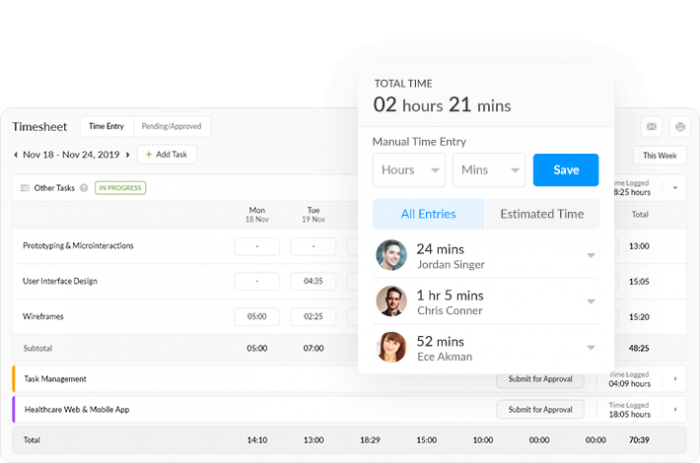Do you have the recurring thought that you don’t have enough time or that it is too late to accomplish what you want to?
If so, you may be suffering from what is referred to as “Time Anxiety.”
Pretty common, especially in today’s day and age of social media portraying unrealistic expectations and lives rushing us by, time anxiety is no fun and can be weighing you down in your everyday life.
Here is everything you need to know and some strategies and tips to overcome the anxiety and work towards being more at peace with the way you are living.
What is Time Anxiety?

There has been a movement where mental health and mental illnesses are now being recognized for what they are and are generating conversation. This is important considering the neglect of such issues does nothing but aggravate them more.
One such mental health illness that people face and that should be talked about is time anxiety.
Although no anxiety manifests the same way in any two individuals, time anxiety is commonly referred to any feeling one may have or the fear you may experience that there is not enough time to accomplish what you want to, or that the time you do have you are wasting.
This is not to be confused with what is often referred to as death anxiety which is the fear that you are running out of time.
If we stop to consider the way our lives are structured and how we grow up, the prevalence of such anxiety in relation to time is not confusing at all.
That is to say, you go from having no concept of time when you are born, and then growing up and living structured lives being segregated into classes or work tasks. Alternatively, the term also refers to the seasons or schedules that suddenly have to be met and adhered to.
With the astronomically busy lives that we lead with every hour of every day being mapped out, it can become an obsession that our lives are slipping away and that we are not spending time in the most meaningful way possible.
Especially with the widespread presence of social media that filters out reality and portray society as saying that if you do not meet these particular goals or any goals you set for yourself in a set amount of time it is too late to achieve them and your time hasn’t been spent meaningfully enough.
According to Dr. Alex Lickerman, the author of the book The Undefeated Mind: On the Science of Constructing an Indestructible Self, these anxious feelings about time stem from thoughts such as:
“Am I creating the greatest amount of value with my life that I can? Will I feel, when it comes my time to die, that I spent too much of my time frivolously?”
How Does Time Anxiety Manifest Itself?
Such anxiety related to time can take several different forms. These forms include current time anxiety, future time anxiety, and existential time anxiety.
Current
Having anxiety or the constant feeling of being rushed can lead to feelings of being overwhelmed which in turn may lead to a feeling of panic. In fact, this common and constant fear and the day-to-day stress this creates can lead to anxiety attacks in some people.
Future
Internal questions of “what if” and thoughts and fears about what could or could not happen in the future may be the cause for this anxiety related to time.
Existential
This is when you have thoughts of lost time that is slipping away that you will never be able to get back.
Alex Lickerman, MD, identified a couple of ways this could appear in your daily life. Such anxieties could be seen in the following ways or examples.
1.You feel a need to rush. When you have anxiety about time you may feel a need to rush from one destination or place to the next, this could even be without reason. If you have ever overslept and once you woke jumped out of bed feeling stressed about the time even if you had no plan to be somewhere, this is that feeling.
2. You worry about lateness. While tardiness may cause negative impacts on your life, and wanting to avoid these by being on time is understandable and completely normal. If you stress over being late or potentially being late to somewhere this could have a negative impact as well and is a sign of anxiety related to time.
If, and, when you do show up a little late to somewhere and this affects your mood in the sense that you feel irritated or even angry, even if your tardiness does not affect anything.
3. Feelings of stress or uneasiness if you do not get around to accomplishing everything that you planned to.
If you do not feel satisfied with things you did manage to do but dwell on those that you did not get around to, or your stress of this situation hinders your ability to stay in the moment and enjoy where you are this could have a great negative impact on your life.
4. You fear you have missed out on opportunities. your anxiety may be in relation to more big picture concerns. You may fear you will never catch up if you haven’t met certain societal milestones you “should” have met by your age.
Ways You Can Deal with Time Anxiety

If you want to try to overcome your anxiety related to the time you need to make yourself aware, you need to take time to understand, and you need to take action.
Below we will cover some steps and strategies you can adopt to do all three. We hope these tricks will get you on your way to overcoming your anxiety.
However, it is important to remember that overcoming any anxiety is a process and does not happen overnight.
Give yourself some time and credit while you try to deal with your anxiety and slowly but surely you will find a way to get greater peace and have less stress when it comes to passing and spending time.
1. Make Yourself Aware of the Relation you Have with Time
First and foremost, you need to evaluate and see whether you are suffering from anxiety-related to time. The next thing to acknowledge is your relationship with time itself.
Having such anxiety is usually due to one ignoring or manipulating the ways in which time impacts our lives.
You need to remind yourself and be aware of the fact that firstly, time exists. Secondly, that you have no control over how time functions and therefore you can neither slow it down nor stop it.
This may seem fairly obvious when spelled out like that, but often as humans, we get so caught up that this reality of time escapes us and unconsciously, we hope that time would just stop. Which of course it will not.
2. Define What Spending Time Well Means
The next thing you need to do is take the opportunity to sit down and really decide what makes you happy. Remember this should not be an outcome but how you spend time.
You don’t want to include running a marathon because it would make you feel accomplished, but question whether running makes you happy?
In other words, think of your output, not the outcome.
As we mentioned above, such anxiety is from a feeling that you are not spending your time in the most meaningful way. Before you can take action to rectify this, you need to define what time well spent means.
3. Make “Space” for What Matters
Once you have decided what matters and what really makes you happy it is time to make space for them in your life.
Notice how we did not say make time for them, and this is a big concept.
You need to take the things that make you happy and see how they will fit into your day. You do not need to make time for them or schedule them in, although if you wish to that is entirely up to you.
However, trying to find a “time” to do these activities can possibly only lead to aggravating your anxiety if you are unable to do so, or if you feel your time is too short.
You need to be aware of the concept of the planning fallacy. You need to be realistic about what you can do and how much time you have to do it.
Making a long list of things with only so much time in the day only leads to increased anxiety and stress.
Therefore, try to find space when you can incorporate your time well-spent activities.
So, for example, if reading is one of those activities you can decide whether you will do so in the morning, maybe on your commute to work, maybe right before bed when your kids are asleep and dinner is done.
It is up to you though.
Don’t fret about the time you have to do these activities just make the conscious effort to incorporate them into your daily life.
As Maria Edgeworth once said, “If we take care of the moments, the years will take care of themselves.”
4. Remove Time Consuming Distractions
Another strategy to adopt is removing time-consuming distractions. In today’s day and age, this mainly refers to the time we spend aimlessly scrolling through social media.
If doing so does not contribute to time well spent in your mind you need to start cutting it out.
Eventually the time we waste on such activities that take away from moments that could be used to contribute to doing things that make us happy only adds up to more anxiety and stress.
As we said, minimizing your anxiety and overcoming it is a process that will take its course. Many people will be struggling and it can take years to fully overcome such anxiety.
The best thing you can do is be patient with yourself and be aware of how to add to the moments that make you happy.
nTask and Time Anxiety

If you are confused about where you are spending your time and wondering where all your time goes, nTask can help.
You can use the application’s timesheets feature to note down where you are spending your most time and track it over a span of weeks or months.
Observing how your time is being spent can help you take out those time-consuming distractions while also allowing you to factor in activities that you deem to be time well spent.
Remember however that this should be used as an observation to make you aware but you should not obsess over every aspect of your day and how your time is being spent to an obsessional extent. Doing so could only increase anxiety and stress.
Conclusion
We hope these tricks will help you on your way to overcoming some of the anxiety and stress that you feel about time.
Time anxiety is common and nothing you need to feel ashamed about. Reach out to friends or family, or even professionals if it ever gets too much.
More articles you may like:

